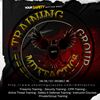NRA Basic CCW
Basic - This course meets state and local requirement for state/local permit.
Duration: 16-hours of classroom instructions and range time
Environment: In Person
$350.00
Fee
| Date | Availability |
|---|
There are no upcoming classes scheduled for this course.
Description
OBJECTIVES:
In the NRA CCW course, instructors will teach the basic knowledge, skills, and attitude necessary to carry a concealed pistol for personal defense.
Qualification:
Students must demonstrate shooting proficiency via a score of 80/100 or 80% to receive a Course Completion Certificate.

Topics Covered
Lesson 1: Firearm Safety (1 hour)
Lesson 2: Pistol Nomenclature and Selecting a Pistol for Self-Defense (1 hour)
Lesson 3: Ammunition Knowledge and Defensive Ammunition Selection (1 hour)
Lesson 4: Basic Defensive Pistol Skills (2 hours)
Lesson 5: Drawing from Concealment (2 hours)
Lesson 6: Loading and Stoppage Remediation (1 hour)
Lesson 7: Mindset (2 hours)
Lesson 8: Carry Modes and Pistol Concealment (2 hour)
Lesson 9: Firearm Cleaning (1 hour)
Lesson10: Sport Shooting and Training Activities (1 hour)
Lesson 11: Legal/Law Considerations (2 hour)
NRA CCW CoF: (2 hours)

Expectations and Outcomes
COURSE COMPLETION CERTIFICATE:
The Instructor is ultimately responsible for determining if a student has successfully completed each learning objective, and if the student has demonstrated the knowledge, skills, and attitude necessary to receive a Course Completion Certificate and Local/State Range Certificate.

Types
Basic, Concealed Carry Training, NRA Courses

Requirements
Prerequisite:
The NRA CCW Course is intended for all individuals regardless of previous shooting experience or NRA-affiliation, but NRA Basic Pistol or equivalent is strongly recommended.
For participants to be successful in this course, they should have the following items, either personally owned.
- Quality Pistol appropriate for concealed carry – recommend minimum of 9mm or .38 Special
- Quality Strong Side Hip Holster – recommend form fitted leather or kydex, must cover trigger/trigger guard
- Quality Belt, designed to carry a holster and a firearm strongly recommended
- Quality ammunition suitable for practice. Encourage students to have at least two rounds.
- Spare magazines or speed loaders with appropriate pouches – at least two additional (3total)
- Clothing appropriate for concealed carry and weather
- Eye protection
- Hearing protection - recommend electronic

